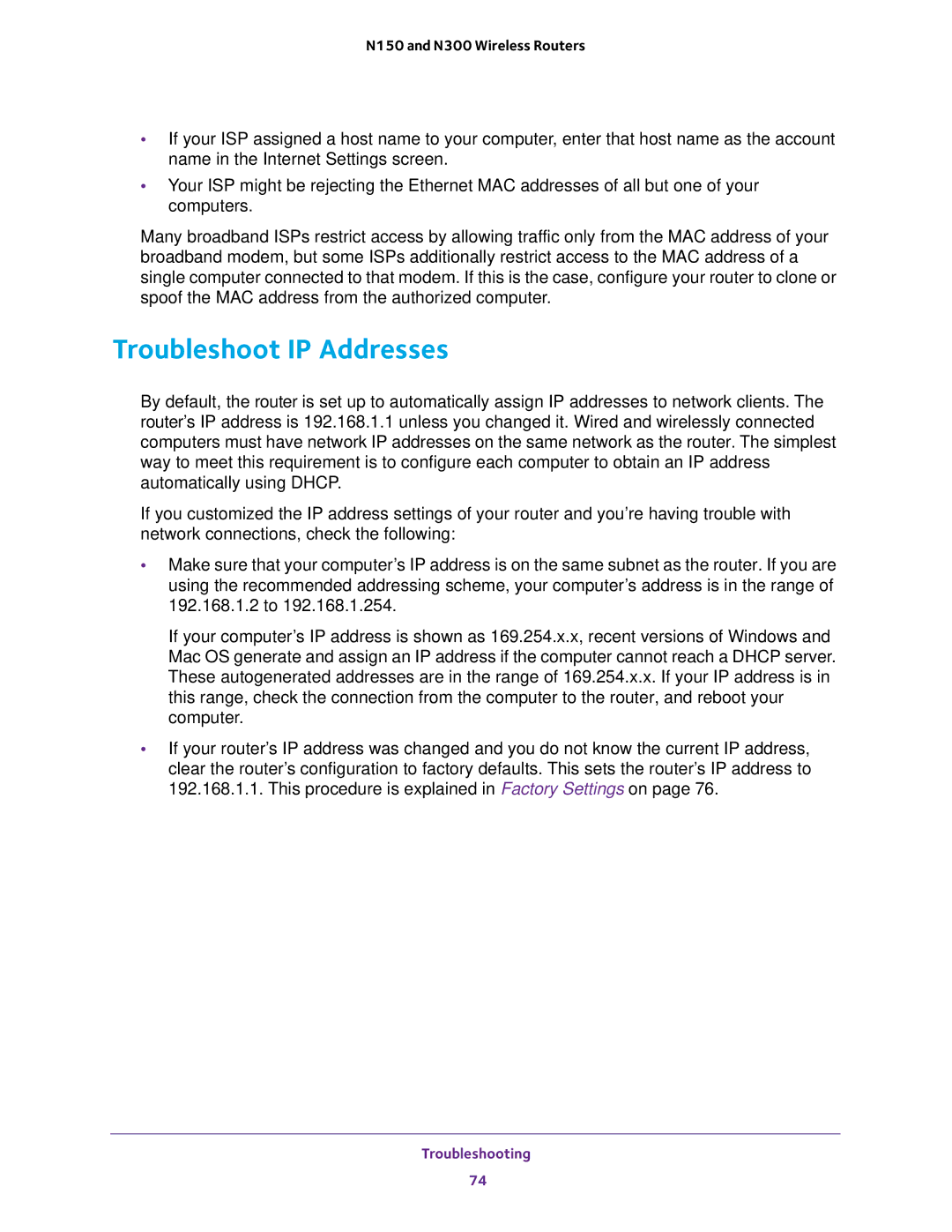N150 and N300 Wireless Routers
•If your ISP assigned a host name to your computer, enter that host name as the account name in the Internet Settings screen.
•Your ISP might be rejecting the Ethernet MAC addresses of all but one of your computers.
Many broadband ISPs restrict access by allowing traffic only from the MAC address of your broadband modem, but some ISPs additionally restrict access to the MAC address of a single computer connected to that modem. If this is the case, configure your router to clone or spoof the MAC address from the authorized computer.
Troubleshoot IP Addresses
By default, the router is set up to automatically assign IP addresses to network clients. The router’s IP address is 192.168.1.1 unless you changed it. Wired and wirelessly connected computers must have network IP addresses on the same network as the router. The simplest way to meet this requirement is to configure each computer to obtain an IP address automatically using DHCP.
If you customized the IP address settings of your router and you’re having trouble with network connections, check the following:
•Make sure that your computer’s IP address is on the same subnet as the router. If you are using the recommended addressing scheme, your computer’s address is in the range of 192.168.1.2 to 192.168.1.254.
If your computer’s IP address is shown as 169.254.x.x, recent versions of Windows and Mac OS generate and assign an IP address if the computer cannot reach a DHCP server. These autogenerated addresses are in the range of 169.254.x.x. If your IP address is in this range, check the connection from the computer to the router, and reboot your computer.
•If your router’s IP address was changed and you do not know the current IP address, clear the router’s configuration to factory defaults. This sets the router’s IP address to 192.168.1.1. This procedure is explained in Factory Settings on page 76.
Troubleshooting
74
